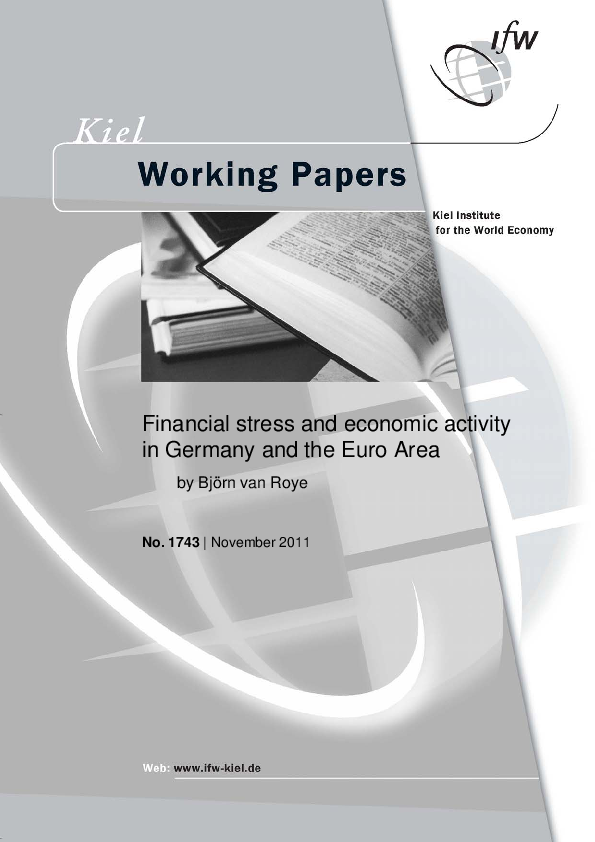Working Paper
Financial stress and economic activity in Germany and the Euro Area
Authors
Publication Date
JEL Classification
Key Words
The financial crisis 2008-2009 and the European sovereign debt crisis have shown that stress on financial markets is important for analyzing and forecasting economic activity. Since financial stress is not directly observable but is presumably reflected in many financial market variables, it is useful to derive an indicator summarizing the stress component of these variables. Therefore, I derive a financial market stress indicator (FMSI) for Germany and the Euro Area using a dynamic approximate factor model. Subsequently, applying these indicators, I analyse the effects of financial stress on economic activity in a small Bayesian VAR model. An increase in financial stress leads to a significant dampening of GDP growth and the inflation rate. Additionally, there is a substantial and persistent decline in short-term nominal interest rates. I find that about fifteen percent of variation in real GDP growth can be accounted for variations in financial stress for Germany and about 30 percent in the Euro Area. I show that the inclusion of the indicator significantly improves out-of-sample forecasting accuracy for real GDP growth in Germany compared to a model without the indicator and other forecast benchmarks.






